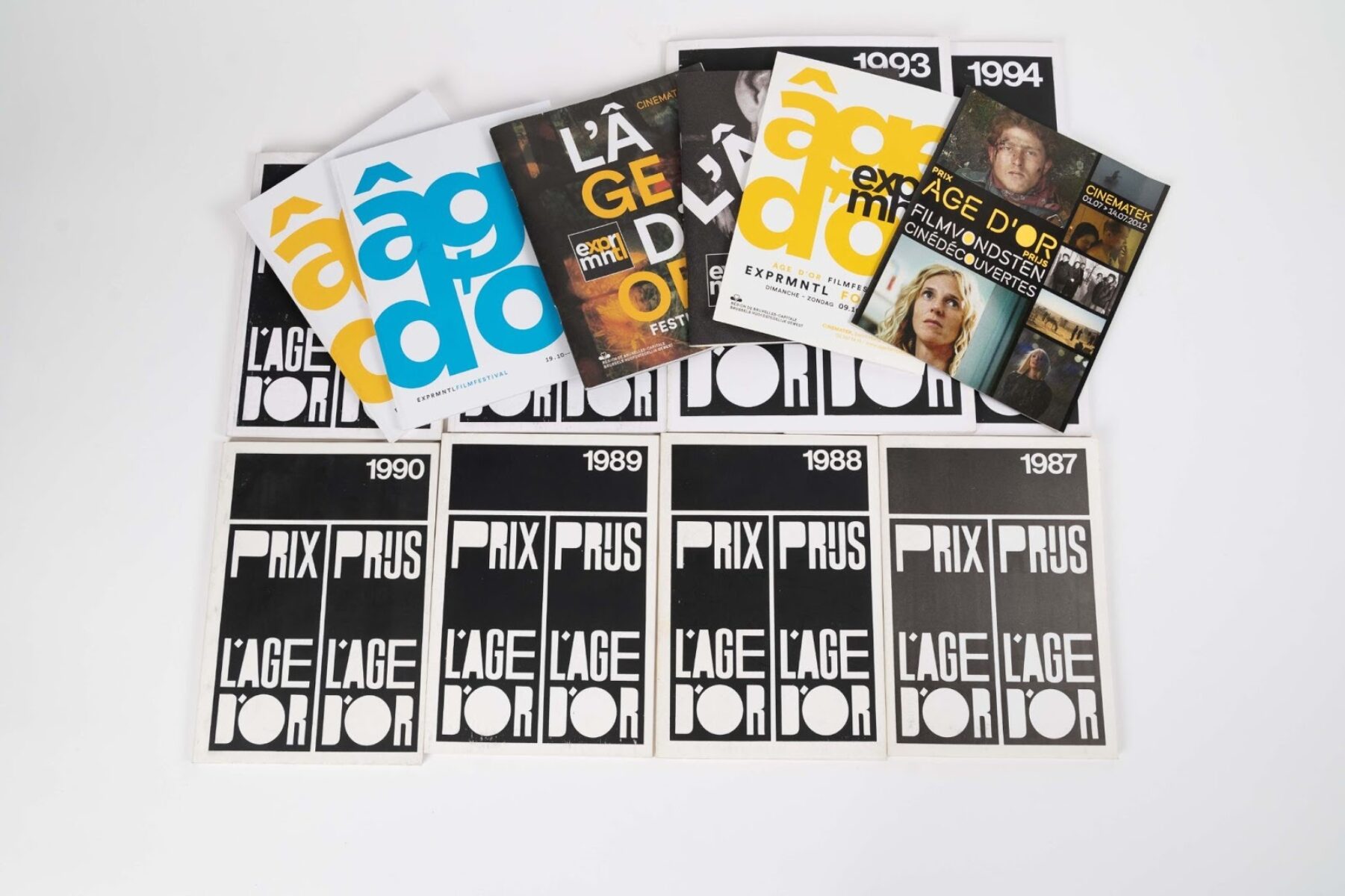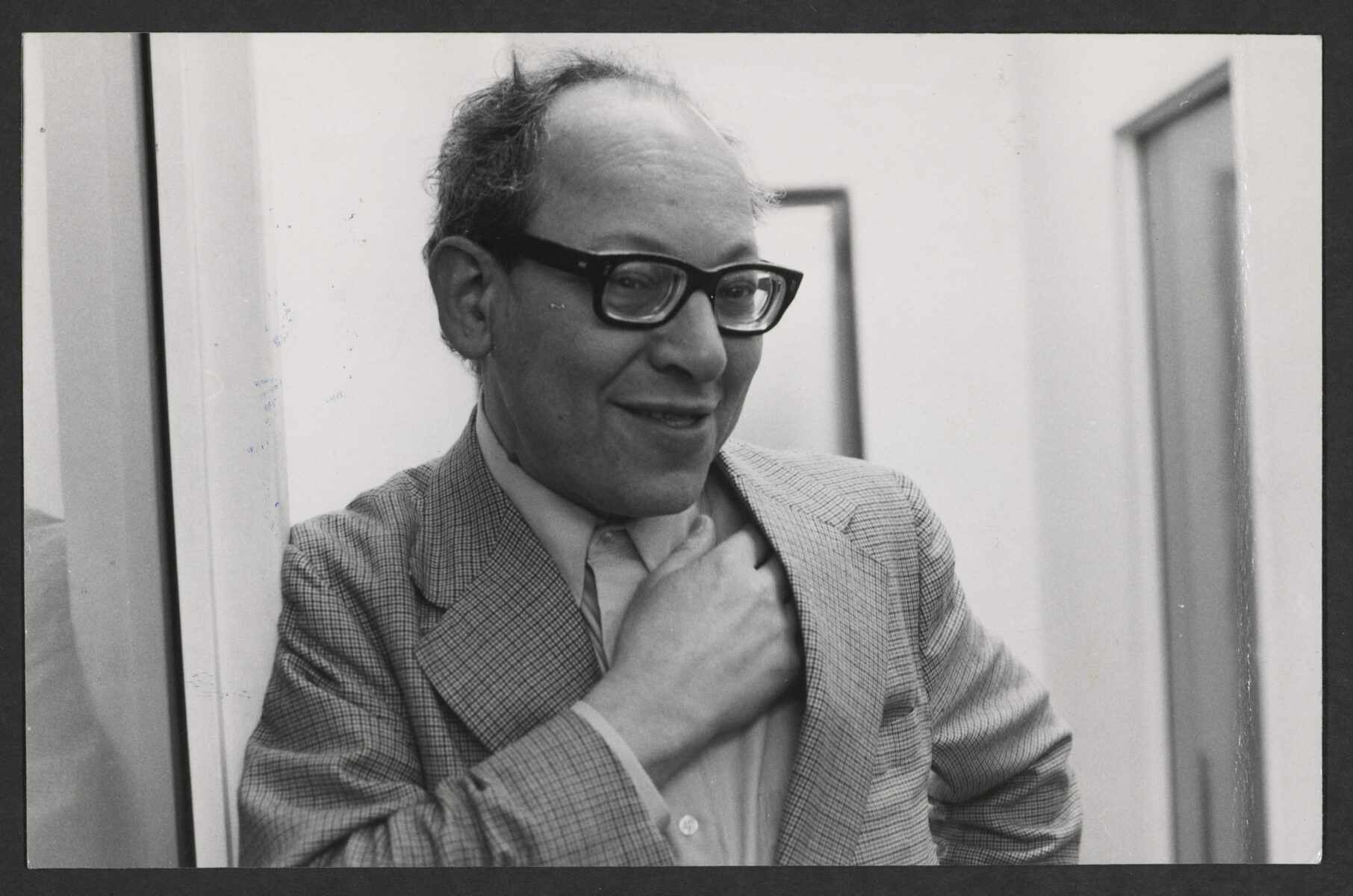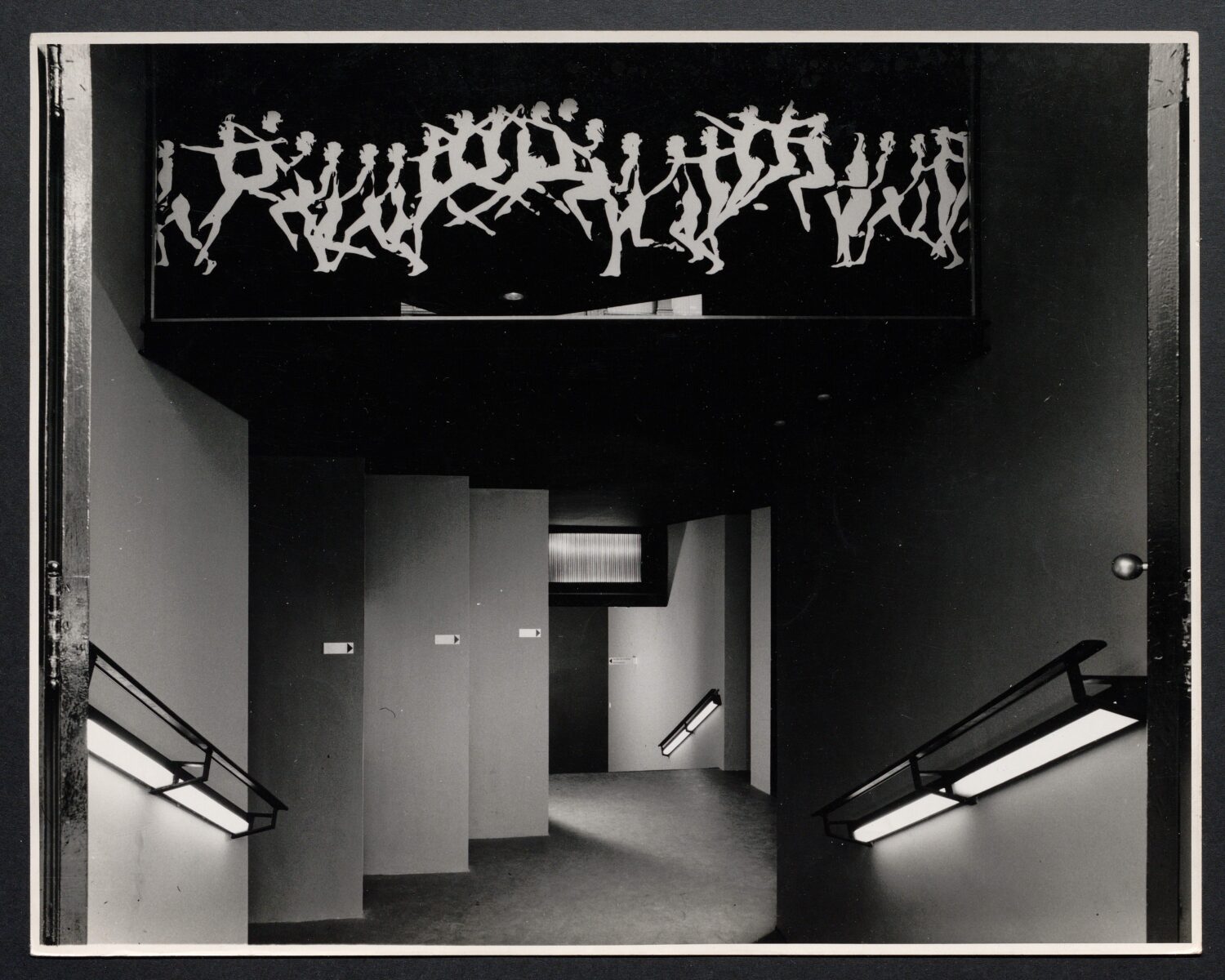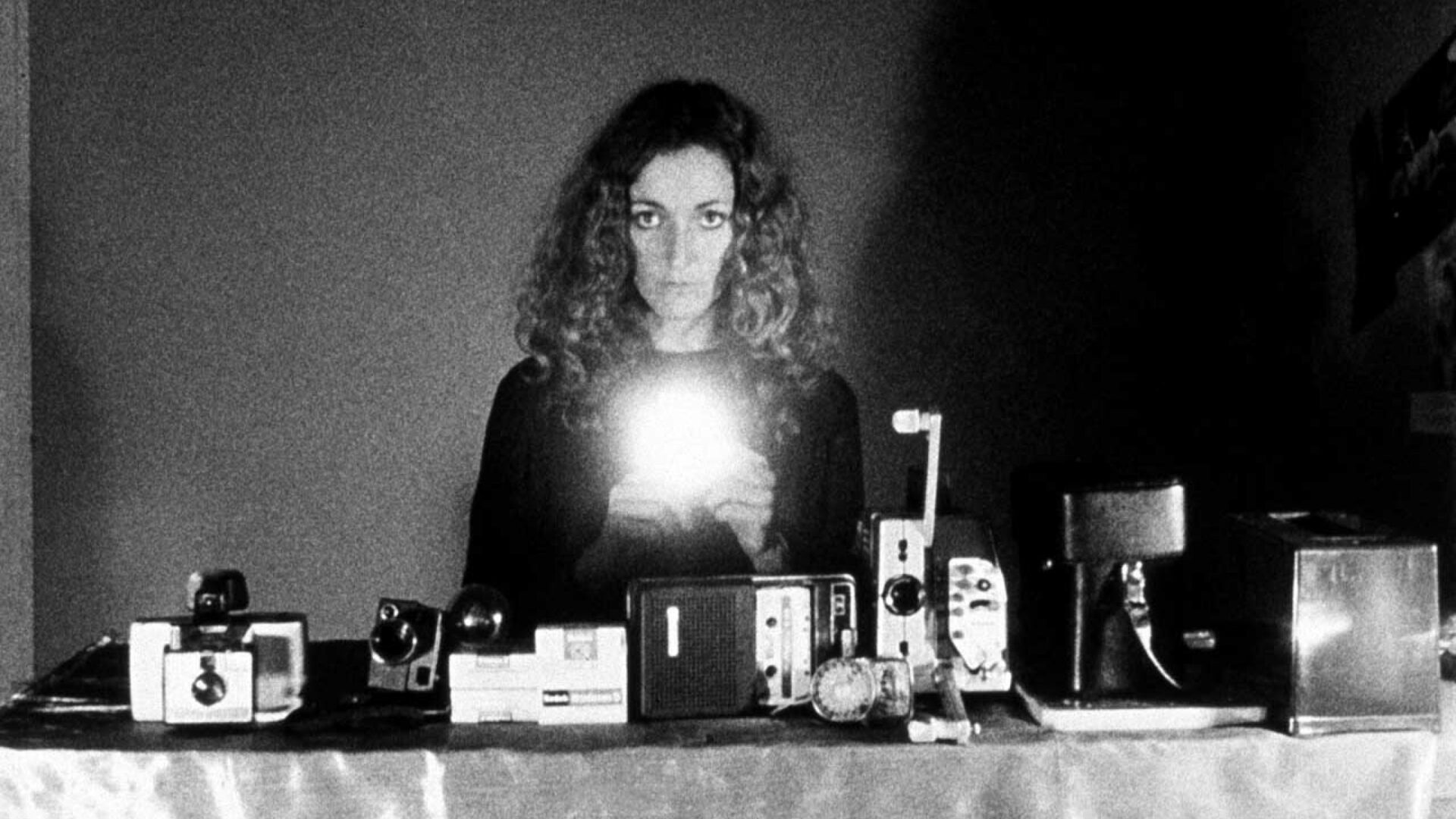Âge d'Or
Âge d'Or History
#agedor
The avant-garde legacy of Jacques Ledoux

The Âge d'Or prize was first awarded in 1958, as part of EXPRMNTL, the Competition for Experimental Film in Knokke-het-Zoute. At the first edition of this exceptional festival, the prize was awarded to Kenneth Anger.
The event thus had both an aesthetic and a philosophical vocation. With regard to the pedantic film style, which became very popular after May '68, Ledoux believed that 'a neglected, academic and conventional style could not but negate, itself betray, a revolutionary and subversive content.' garde framework are the core values of Âge d'Or.
Film prize
In 1973, the Âge dOr prize is reimagined. The prize was to be awarded by a Belgian jury to a feature film as part of a public program presented at the Film Museum.
The concept would change several times over the years. In the current text, which is the result of a lot of animated discussions between Jacques Ledoux and René Micha, long chairman of the jury of the Âge d'Or prize, the words 'revolutionary' and 'poetic' give way to 'originality'.
The Âge d'Or prize is awarded to a film which, due to the particularity of its design and its writing, departs from the broad cinematographic paths. It remains, of course, a tribute to the renowned oeuvre of Luis Buñuel and is a reflection of the parallel evolutions of mentality and cinema.
(Jury Äge d'Or)
Held annually at CINEMATEK, the film festival continued to include thematic retrospectives, screenings, debates and screenings of film restorations, with the aim of highlighting films produced over the past two years. The festival presented a daring film program that sought to deconstruct and critique conformism in both cinema and society. The festival chose not to distinguish between genres in the various sections, nor to limit itself to a specific format. The visitor could enjoy unique and special screenings where artists regularly came to present their own film.
The list of achievements not only provides a good overview of the winners of the Âge d'Or prize, but it also reflects the continuous development of the concept. As a contemporary and progressive film festival that always wanted to reinvent itself so as not to become mainstream or traditional, new angles were regularly devised. The titles are cataloged from 1973 and five years later the Film Finds are created, this category includes existing films that fully fit the spirit of Âge d'Or and that, according to the jury, deserve fame, but do not participate in the competition. In 2004 it was decided to award a prize for this category as well, and from 2010 there will be an official public award. No competition took place in 1995 and 2001.
Curious about who won the prize?
Below an excerpt from the palmares of Âge d'Or (until 2004)
- 1973
- WR: Misterije Organizma, Dusan Makavejev Yugoslavia
- 1974
- Les Contes Immoraux, Walerian Borowczyk France
- 1975
- L’expropiacion, Raul Ruiz Chili
- 1976
- O Thiassos, Theo Angelopoulos Greece
- 1977
- Seishun No Satsujinsha, Kazuhiko Hasegawa Japan
- 1978
- Shirley Temple Story, Antoni Padros Spain
- 1979
- 1980
- Sauve qui peut (la vie), Jean-Luc Godard France-Switzerland
- 1981
- Caniche, Bigas Luna Spain
- 1982
- Outside in, Steve Dwoskin UK
- 1983
- Eisenhans, Tankred Dorst BRD
- 1984
- Utopia, Sohrab Shahid Saless BRD
- 1985
- Le Soulier De Satin, Manoel De Oliveira Portugal-France
- 1986
- Diapason, Jorge Polaco Argentina
- 1987
- Anjos De Arrabalde, Carlos Reichenbach Brazil
- 1988
- 1988
- Os Canibais [The Cannibals], Manoel De Oliveira Portugal
- 1989
- Neardeath, Frederick Wiseman USA
- 1990
- Caidos Del Cielo [Fallen from Heaven], Francisco Lombardi Peru-Spain
- 1991
- Edward Ii, Derek Jarman UK
- 1992
- Sangatsu No Raion [March Comes In Like A Lion], Hitoshi Yazaki Japan
- 1993
- Kitchen, Yoshimitsu Morita Japan
- 1994
- Satantango, Béla Tarr Hungary
- 1995
- 1996
- A Comedia de Deus, João César Monteiro Portugal
- 1997
- Witman Fiuk, Janos Szasz Hungary
- 1998
- Xiao Wu, Jia Zhang Ke China
- 1999
- Khroustaliov, Ma Voiture, Alexei Guerman Russia-France
- 2000
- Eureka, Shinji Aoyama Japan
- 2001
- 2002
- Japón, Carlos Reygadas Mexico
- 2003
- Clément, Emmanuelle Bercot France
- 2004
- Los Muertos, Lisandro Alonso Argentina-France
Films Jeunes / Films Inédits (1968-1972)
Jacques Ledoux was an atypical archivist, he was also a real 'curator' of the Cinémathèque royale de Belgique for several decades. His friend Amos Vogel, founder of the New York film club Cinema 16 and author of the book Film as a Subversive Art, has noted Ledoux's unique position within the community of film scholars:
Film archivists at cinémathèques and museums are […] very methodical, goal oriented and have a tremendous attachment to the past. They have these characteristics, but unlike many of the others, Ledoux had an interest in the future, he was very involved with the avant-garde, he loved it with a genuine love, and every time I saw him I realized that he had a new way of seeing it.
(Amos Vogel)

"For this ardent cinephile," says the filmmaker Jean-Marie Buchet, "the cinema to come was almost more interesting to him than the one that had already been produced. Ledoux's careful attention to the achievements of the past was coupled with a rare insatiable curiosity for the present and future of cinema, and in particular for its most original forms. The EXPRMNTL festival in Knokke (five editions between 1949 and 1974) and the Prix de L'Âge d'Or (created in 1957, but which Ledoux decided to make into a full-fledged event in 1973, in order to celebrate films which, by their questioning of established values, were reminiscent of the poetic and revolutionary work of Luis Buñuel) bear witness to this activity and this pleasure in invention.
It is a less well-known fact that between the mythical edition of EXPRMNTL 4 (1967) and that of EXPRMNTL 5 (1974), which Ledoux would remember with such disappointment that it would be the last one, but before the creation of the Age d'Or festival (1973), the curator of the Cinémathèque had developed another festival at the Musée du Cinéma, called "Films jeunes, films inédits", which ensured the link between these initiatives.
"Films jeunes, films inédits" was held four times between 1968 and 1972, and was one of the major stages in the intense programming work which, during this period, saw Ledoux introducing experimental productions more and more frequently into the monthly screening programme.
The programming of "Films jeunes, films inédits" followed a new approach, crossing formal experimental films with ciné-tracts as well as with attempts to renew the narratives. Dedicated to liberating works, films and filmmakers, "the wild children of cinema" (to use the critic Gérard Langlois' formula, quoted by Ledoux at the time), from a rigid formal approach to avant-garde.
With a great sense of freedom and freef association, films by Jean Eustache, Fernando Solanas, Robert Beavers, Sarah Maldoror, Moustapha Alassane, Werner Herzog, Tom Chomont, David Cronenberg, Mario Schifano, Marguerite Duras, Walerian Borowczyk, Jozé Bénazéraf, Yoji Kuri, Ed Emshwiller, the Coopérative Nouveaux Printemps, and the Groupe Zanzibar, which was based around Sylvina Boissonnas, were presented.



Le 19.02 « Film jeunes, films inédits », un festival créé par Ledoux au Musée du cinéma, sera présenté par l'historien et programmateur indépendant Xavier García Bardón. Il est frappant de constater que les choix de Ledoux sont toujours d'actualité, comme le montrera Xavier García Bardón le 19.02, d'abord avec Jackie Raynal comme invitée et ensuite avec la projection du film A nous deux, France ! de Désiré Ecaré.
Publication Jacques Ledoux 2022

Hardcover catalogue published on the occasion of what would have been the hundredth birthday of Jacques Ledoux (CINEMATEK, Brussels 2021)
119 pages / Illustrations in colour and black and white / All texts in French, Dutch or English
The book Jacques Ledoux brings together exclusive testimonies collected in 2021 from historians such as David Bordwell, Kristin Thompson or Bernard Eisenschitz and former staff members of the Film Archive. A testimony by Paul Davay and a transcription of an interview with Jacques Ledoux, both previously unpublished, complete this work, along with the republication of a biographical note by Gabrielle Claes. The book is richly illustrated with archival images. The publication is on sale at 15€ in our webshop.
Under the hashtag #meetthefilmmakers, CINEMATEK introduces you to an ÂGE D'OR director in a fascinating way.
So be sure to check #agedor as well!
